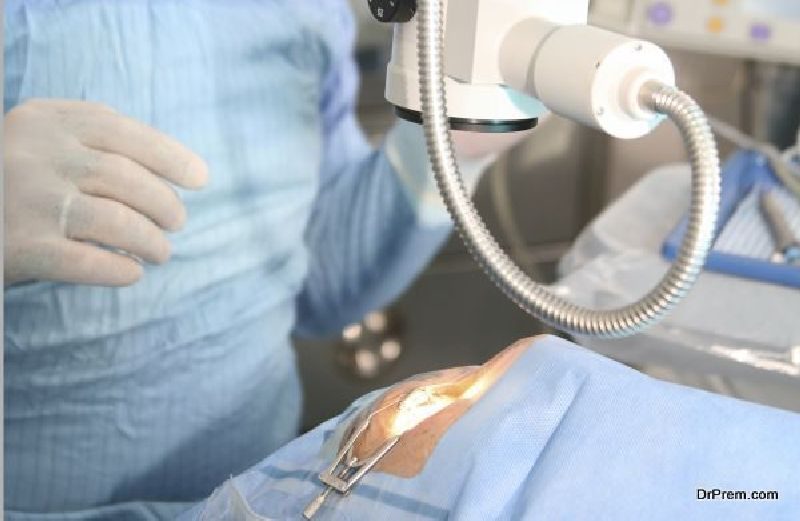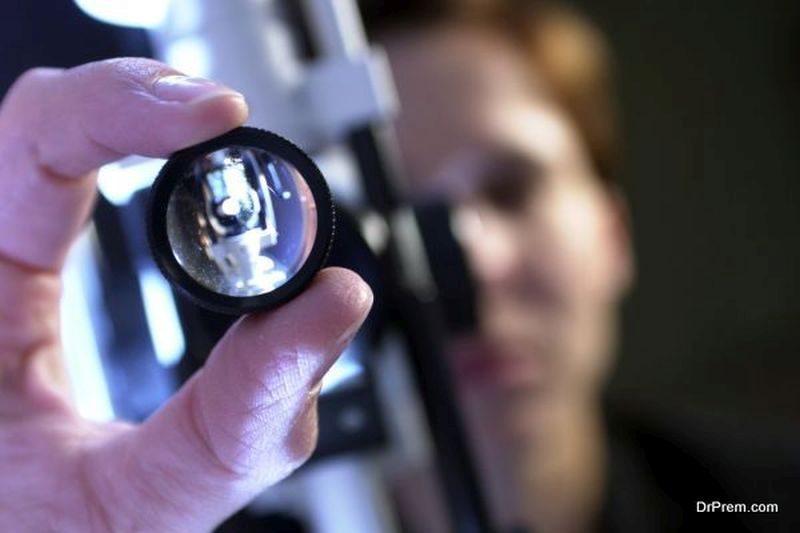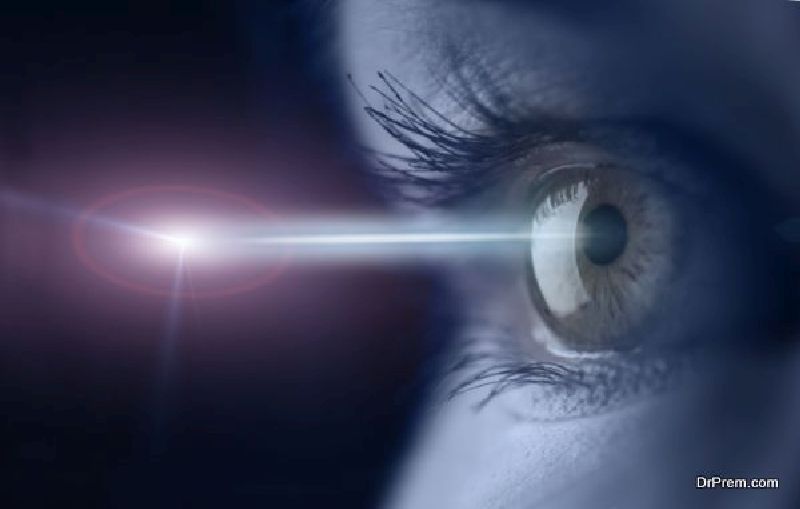Eye surgery has become much more commonplace in recent years. Some surgery is corrective or elective, while others are necessary for maintaining a patient’s eyesight. But do you know what conditions require surgery and what these procedures entail?
This article will discuss the most common types of eye conditions and procedures.
Cataract Surgery

Cataracts are a very common eye condition that affects over 24.4 million Americans aged 40 and older. Patients with cataracts have difficulty seeing because the lens of the eye becomes cloudy. Images can appear foggy, blurry, or less colorful.
Because cataracts are a condition that develop and worsen with time, some individuals don’t realize they’re suffering until their vision becomes extremely compromised. Some early warning signs of cataracts include:
- Blurry vision
- Double vision
- Sensitivity to light
- Trouble seeing in the dark
- Faded colors
Because cataracts is an extremely common eye condition, treatment and surgery is also fairly common. The most popular way to treat cataracts for a surgeon is to simply replace a patient’s blurry lens with an artificial one. This surgery is often done in office within 60 minutes or less. Recovery from cataract surgery is also relatively easy. You may feel slight discomfort and itchiness for a few days following the procedure, as well as blurry vision. These symptoms should dissipate in some days.
Glaucoma Surgery
Glaucoma is another very common condition that mostly affects aging individuals. Glaucoma is the result of damage to your eye’s optic nerve, which is often caused by a buildup of pressure. The onset of Glaucoma doesn’t have any obvious symptoms because it creates slow vision loss over time and can eventually lead to blindness.
Once patients are diagnosed with this condition, there are two ways to address it. The purpose of Glaucoma surgery is to reduce the pressure buildup in the eye. Laser surgery is a simple and effective option for Glaucoma patients. This is an outpatient procedure with mild side effects including blurry vision. But individuals can usually resume regular activity the following day.
If laser surgery does not correct a patient’s Glaucoma condition, conventional surgery might be required. This is also an outpatient procedure, but is slightly more invasive. Because of this, patients’ recovery time could be as long as one week and might include red, watery eyes.
Lasik Surgery

Lasik surgery is a corrective procedure. It does not treat a specific medical condition, but instead is for patients who require glasses to see properly. Given the fact that 6 out of 10 people require glasses or contact lenses, it’s no surprise that lasik eye surgery is rising in popularity.
Lasik is actually an abbreviation for laser-assisted in situ keratomileusis and is the most common form of surgery used to fix problems associated with the eyes’ ability to focus. During this procedure, a laser is used to remove tissue from underneath the surface of your cornea, reshaping it. Lasik is a fairly simple procedure that takes between 30 and 60 minutes, depending on if the patient is having one or both eyes done. Post surgery, patients may experience a day or two of discomfort but might also see improvements in vision the next day.
Macular Degeneration Surgery
Macular degeneration is another condition that affects aging eyes. The macula of your eye is what helps you see details. This type of condition is often referred to as age-related macular degeneration, or ARMD. Blurry vision is the first sign you may be experiencing issues with your macula. Blurred vision is often followed by the inability to see straight lines clearly and sensitivity to light.
Another, more severe type of ARMD is called wet ARMD. Patients suffering from this condition will see dark spots, as blood vessels in their eyes begin to leak. Laser surgery can help burn blood vessels and prevent future bleeding. Following this type of surgery, it can take up to several weeks for patients to begin seeing clearly, and sometimes, additional procedures are required.
Retina Surgery

The retina is located in the back of the eye and is made up of light-sensitive tissue. For some patients, the retina slowly detaches from surrounding tissue. Retina surgery can accomplish several things from returning the retina to its original position, as well as repairing any holes or tears in the tissue.
Though retina surgery is fairly common, it is often something that should be performed immediately after the onset of symptoms. This is because a detached retina is not getting the appropriate amount of oxygen and can eventually lead to complete loss of vision. Warning signs that you’re experiencing retina damage include:
- Floaters
- Flashes of light
- Shadows
All of these symptoms will make seeing difficult for individuals. Retina repair is performed at the onset of retina damage, before the retina actually detaches. Here, a surgeon will close any holes or tears using a laser. This is an in office procedure and relatively simple. Another common procedure to help reposition the retina is known as a gas bubble placement. The doctor injects a gas bubble into the patient’s eye, which then floats up and pushes the retina back into place.
When the retina is already detached, patients will likely need more advanced surgery performed in a hospital. These procedures are known as the scleral buckle method and vitrectomy procedure. Scleral buckle entails indenting the eye inward to meet the hole in the retina, whereas a vitrectomy releases tension around the retina, allowing it to move back to its original position.
Retinal detachment does not improve with time and needs to be treated immediately to avoid complete vision loss.
Keep an Eye on Things
Your eyes will guide you when it comes to seeking professional medical help. If you are experiencing any of the abovementioned symptoms from blurry or double vision to sensitivity to light or vision loss, you should seek medical attention.
Eye surgery has never been so simple; so, don’t hesitate to consider these options for correcting your eye issues.
Article Submitted By Community Writer




